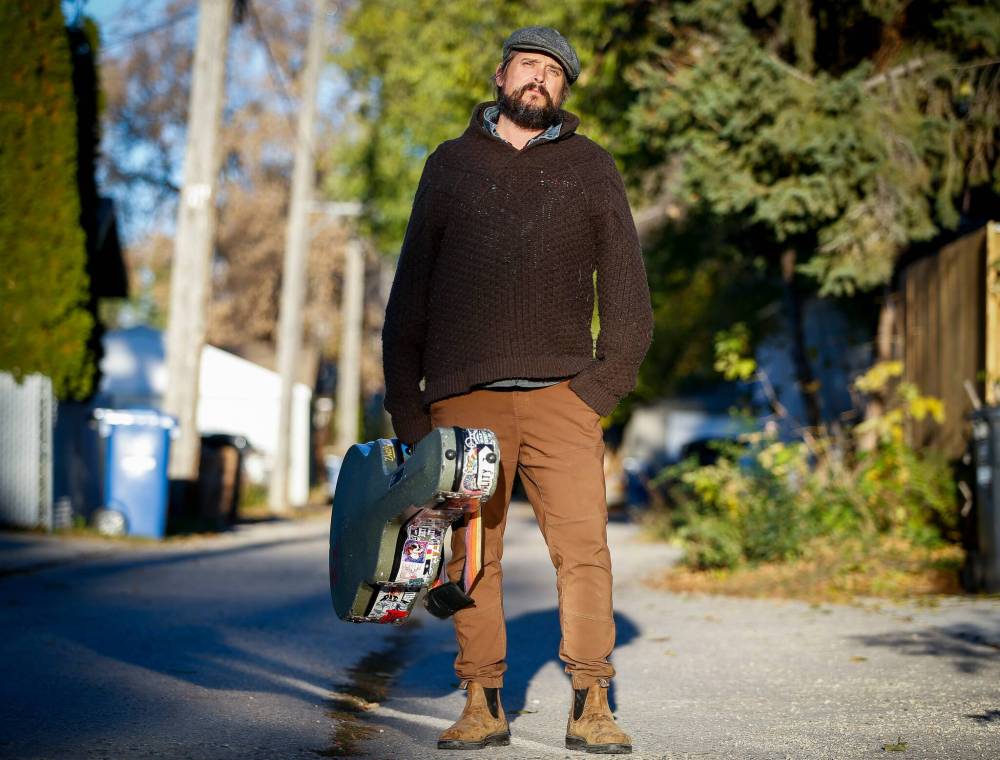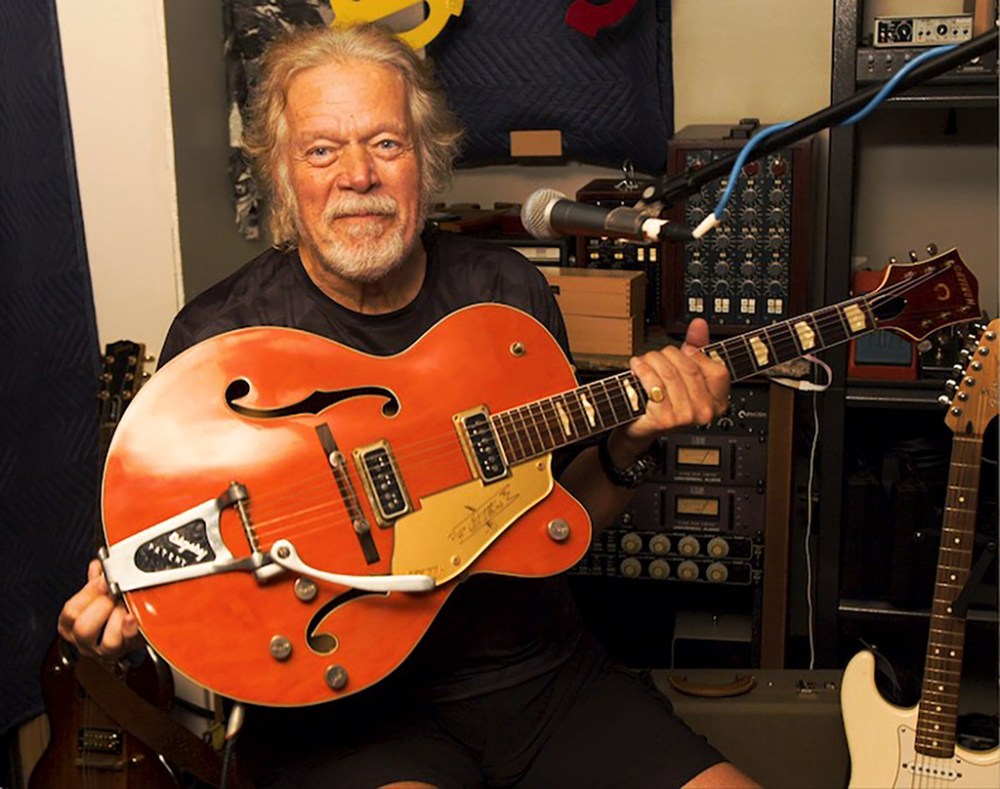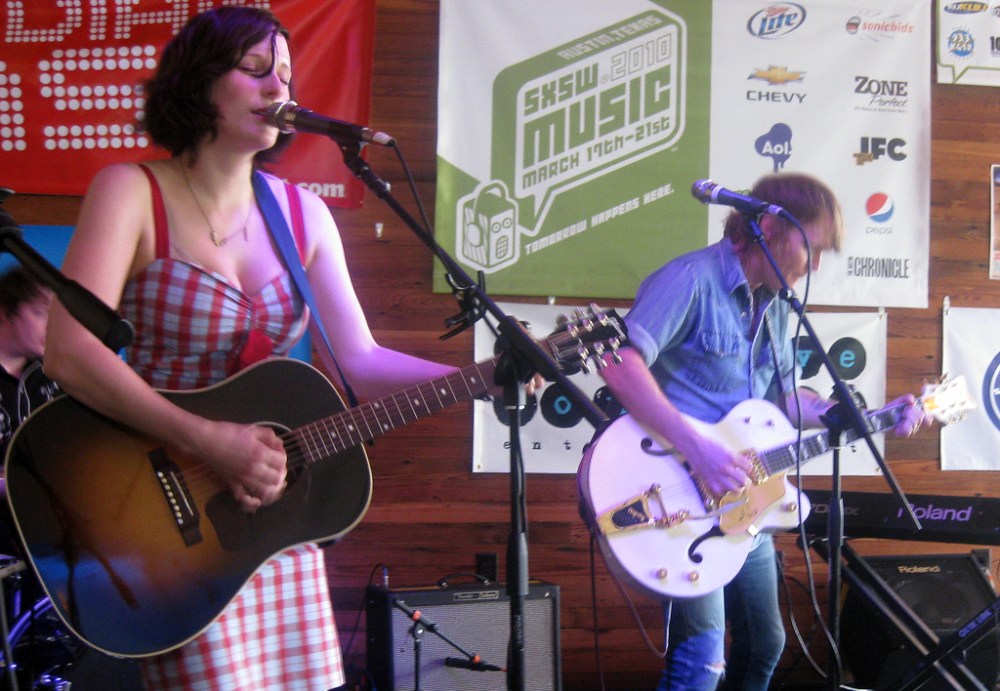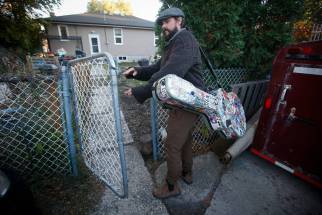Emotional baggage For travelling musicians, valuable instruments are more than mere luggage
Read this article for free:
or
Already have an account? Log in here »
To continue reading, please subscribe:
Monthly Digital Subscription
$0 for the first 4 weeks*
- Enjoy unlimited reading on winnipegfreepress.com
- Read the E-Edition, our digital replica newspaper
- Access News Break, our award-winning app
- Play interactive puzzles
*No charge for 4 weeks then price increases to the regular rate of $19.00 plus GST every four weeks. Offer available to new and qualified returning subscribers only. Cancel any time.
Monthly Digital Subscription
$4.75/week*
- Enjoy unlimited reading on winnipegfreepress.com
- Read the E-Edition, our digital replica newspaper
- Access News Break, our award-winning app
- Play interactive puzzles
*Billed as $19 plus GST every four weeks. Cancel any time.
To continue reading, please subscribe:
Add Free Press access to your Brandon Sun subscription for only an additional
$1 for the first 4 weeks*
*Your next subscription payment will increase by $1.00 and you will be charged $16.99 plus GST for four weeks. After four weeks, your payment will increase to $23.99 plus GST every four weeks.
Read unlimited articles for free today:
or
Already have an account? Log in here »
Hey there, time traveller!
This article was published 21/10/2022 (1143 days ago), so information in it may no longer be current.
JD Edwards is no white-knuckle flier.
But the singer-songwriter was gripped by anxiety on Aug. 30 while returning to Winnipeg from a music festival in Tønder, Denmark, where he performed with Cara Luft as part of the Small Glories.
It wasn’t the turbulence he felt on the two flights, nor any worries about contracting COVID-19 that had him rattled. His fears shot up when gate agents said there was no room in the main cabin for his Stonebridge DS-33 acoustic guitar and the case that protected it.

Edwards would have to check it, and the guitar and its case would have to ride home in cargo with the rest of the luggage, loaded, unloaded and loaded again by baggage handlers on the two flights back home.
“Friends of mine have had guitars gone missing or they were sent to a totally different place and they weren’t able to have it for the performance. Some instruments, I heard, got totally destroyed. All these horror stories,” he says. “I had all this stuff going through my head and I got all worried.
“To lose it would be hard; it would be difficult and I would be upset.”
Edwards isn’t alone in worrying about safety of his gear on the road. Nightmare stories abound of guitars broken in half during a flight or not making their destination at all, or thefts of other musical instruments that threaten to derail tours and affect performing artists’ livelihoods.
Canadian guitarist Dave Carroll gained notoriety in 2009 after releasing the song and viral video United Breaks Guitars, which detailed the 2008 experience of his $3,500 Taylor guitar being badly damaged while flying in the luggage hold after attendants wouldn’t let him stow it in the main cabin.
Edwards hopes Carroll’s ordeal was an isolated incident.
“I never really want to assume that anyone at an airline is out for vengeance and wants to destroy instruments,” he says.
Winnieg indie rockers Royal Canoe have made headlines for their award-winning albums, but also for a costly theft of their gear while on tour.
Thieves in Laval, Que., in October 2016 ripped off the band’s new trailer, which held their instruments and computer equipment — an $82,000 loss that was partly covered by insurance — forcing the band to hold an internet crowdfunding campaign to rent gear for the rest of the tour.
One of the most famous guitar thefts — and its eventual recovery decades later — involves another guitarist with Winnipeg connections.
Randy Bachman’s 1957 orange Gretsch 6120 Chet Atkins guitar was stolen in Toronto 1977 while he was touring with Bachman-Turner Overdrive, a theft that the Canadian Music Hall of Famer has described as like seeing your dog get run over.

He had ogled the guitar in a Winnipeg music shop for months in 1964 before saving $400 to buy it. He eventually used it to write hits such as the Guess Who’s American Woman and These Eyes.
He got it back in a ceremony in Tokyo on Canada Day, swapping a nearly identical orange 1957 Gretsch 6120 Chet Atkins with Japanese rocker TAKESHI, who had bought Bachman’s old Gretsch eight years ago in Tokyo without knowing it had been stolen.
“To get it back is quite an incredible missing piece in the puzzle of my life and to have it back is quite amazing,” Bachman says.
Air Canada saved space in a closet for the guitar on the trip back and Bachman says it won’t leave his house on Vancouver Island ever again.
The cosy closet for Bachman’s famous guitar is the exception in 2022, musicians have found.
Complaints about lost and damaged luggage from musicians and non-musicians alike soared this summer as airlines ramped up flights, prompting travellers to jam their bags into overhead bins in the cabin, leaving no room for guitars.
Luke Doucet of the Winnipeg-based roots-rock group Whitehorse had to scramble when guitar and guitarist didn’t make it to the airport at the same time.
He travels with several axes — songs with different tunings and tones require additional gear — and the musical community came to the rescue.
“We played in Nashville and then in Ottawa and one of my Falcons, one of my Gretsches, didn’t make it to Ottawa,” Doucet said prior to Whitehorse’s Sept. 27 concert at the Park Theatre. “Thankfully, there was a guy who was part of the crew (who said), ‘I live a block-and-a-half from here and I’ve got a Telecaster and it’s going to be fantastic,’ and, you know what, it was great and he totally saved my ass.”
Doucet got the guitar back safe and sound shortly after, and despite the luggage delays, he’s pressing on, taking valuable equipment on tour for future gigs.

“I have a ’64 (Gibson) SG and a ’57 Les Paul Junior that I really love, but to me they’re coming on the road; that’s what they’re for,” he says. “I’m not going to leave them in a closet, in a vault or in a studio; 90 per cent of my working life is on the road… In 30 years of being on tour I’ve had one guitar stolen and one guitar broken, and I think those odds are worth taking.”
Winnipeg singer-songwriter Ila Barker is an up-and-coming artist but she has sage advice for touring musicians.
“It’s terrifying every time I travel with (my guitar), but I have insurance for that reason. I always ask everyone when I hear their horror stories: ‘Why don’t you have insurance?’ ” she says. “I haven’t had any nightmares yet, but my guitar case definitely has taken a beating.”
A violin is an easy carry-on item aboard airliners, but that doesn’t make flying to concerts during the COVID-19 pandemic any easier, says James Ehnes, the virtuoso formerly of Brandon who performs with the ex-Marsick Stradivarius, a 307-year-old violin that he says, “always stays close.”
“The travel is awful now; I can’t overstate it. Everything you hear about how completely demoralizing about it is completely true.” says Ehnes, who helped the Winnipeg Symphony Orchestra launch its 75th anniversary season Sept. 17 at the Centennial Concert Hall before heading off to concerts in Japan, South Korea, Singapore and Australia.
“Unfortunately, that seems to be a fact of this new chapter we’re living in, and from my perspective it makes my life more difficult, but it certainly makes life more difficult for a lot of people.”
Musicians grow attached to their instruments, whether it’s a priceless Stradivarius or a cheap guitar they learned their first chords on as a youngster.
“Instruments, they’re just things, I guess, but they really have all this memory and they have all of this power that it’s just so hard to see it go,” Edwards says. “I know you can always get a new guitar — gosh, there are so many bloody guitars out there — but it’s hard to see your baby busted up.”
The only real way guitarists can protect their instruments from the rigours of air travel is vigilance and a sturdy case.
Leaving it in the backseat of a car is a welcome mat for thieves; Edwards is even leery about leaving his guitar onstage in a locked concert venue for a couple of hours after an afternoon soundcheck.

His guitar case, laden with stickers from touring all over the world, is made of tough fibreglass. Luft, who plays banjo, refitted a hard-shell golf-club travel case to prevent any damage.
“It’s kind of awkward but it really saves her banjo,” Edwards says. “Sometimes people think that it is golf clubs, and they say if you have golf clubs, (baggage handlers) take better care of them.”
He returned to the road this week with Luft, as the Small Glories, three-time winners of the Canadian Folk Music Awards, drove to Alberta for a few gigs.
His trusty Stonebridge guitar has joined them. It survived the journey from Denmark and will continue to be slung on Edwards’ shoulder when the Small Glories play nine shows in New England in November and, barring six-string trauma, the West End Cultural Centre on Dec. 17.
“Luckily, nothing happened, everything was fine. There was no nightmare after all,” Edwards says. “Now I have AirTags, and I don’t know if that makes things better but at least I’ll know where it possibly could be if things do get lost.”
Alan.Small@freepress.mb.ca
Twitter: @AlanDSmall

Alan Small has been a journalist at the Free Press for more than 22 years in a variety of roles, the latest being a reporter in the Arts and Life section.
Our newsroom depends on a growing audience of readers to power our journalism. If you are not a paid reader, please consider becoming a subscriber.
Our newsroom depends on its audience of readers to power our journalism. Thank you for your support.









